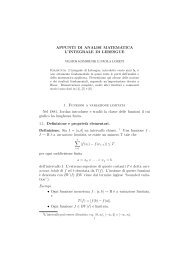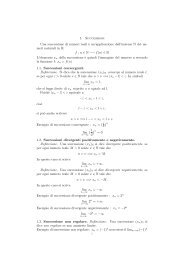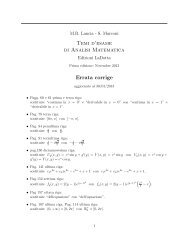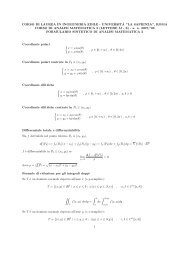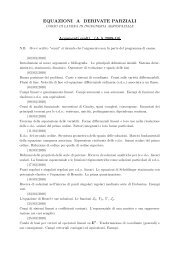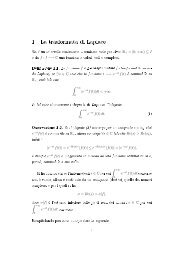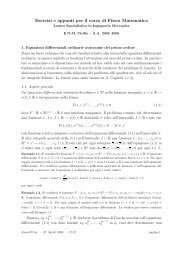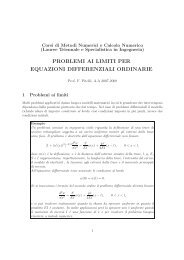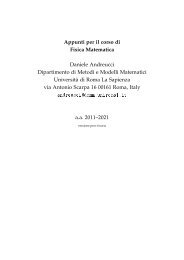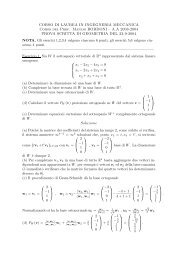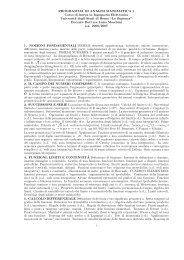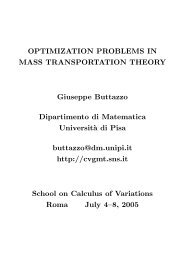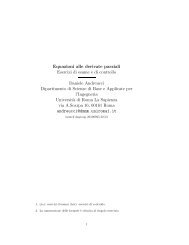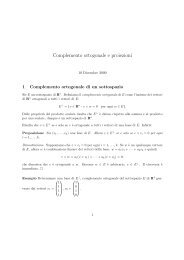DIFFERENtIAl & DIFFERENCE EqUAtIONS ANd APPlICAtIONS
DIFFERENtIAl & DIFFERENCE EqUAtIONS ANd APPlICAtIONS
DIFFERENtIAl & DIFFERENCE EqUAtIONS ANd APPlICAtIONS
You also want an ePaper? Increase the reach of your titles
YUMPU automatically turns print PDFs into web optimized ePapers that Google loves.
FAST CONVERGENT ITERATIVE METHODS FOR SOME<br />
PROBLEMS OF MATHEMATICAL BIOLOGY<br />
HENRYK LESZCZYŃSKI<br />
We investigate how fast some iterative methods converge to the exact solution of a differential-functional<br />
von Foerster-type equation which describes a single population dependent<br />
on its past time, state densities, and on its total size.<br />
Copyright © 2006 Henryk Leszczyński. This is an open access article distributed under<br />
the Creative Commons Attribution License, which permits unrestricted use, distribution,<br />
and reproduction in any medium, provided the original work is properly cited.<br />
1. Introduction<br />
Von Foerster and Volterra-Lotka equations arise in biology, medicine and chemistry, see<br />
[1, 9]. The independent variables x j and the unknown function u stand for certain features<br />
and densities, respectively. It follows from this natural interpretation that x j ≥ 0<br />
and u ≥ 0. We are interested in von Foerster-type models, which are essentially nonlocal,<br />
because there are included also the total sizes of population ∫ u(t,x)dx.<br />
Existence results for certain von Foerster-type problems have been established by<br />
means of the Banach contraction principle, the Schauder fixed point theorem or iterative<br />
method, see [2–5]. These theorems are closely related to direct iterations for a natural<br />
integral fixed point operator. Because of nonlocal terms, these methods demand very<br />
thorough calculations and a proper choice of subspaces of continuous and integrable<br />
functions. Sometimes, it may cost some simplifications of the real model. On the other<br />
hand, there is a very consistent theory of first-order partial differential-functional equations<br />
in [7], based on properties of bicharacteristics and on fixed point techniques with<br />
respect to the uniform norms. Our research group has also obtained some convergence<br />
results for the direct iterative method under nonlinear comparison conditions.<br />
In the present paper, we find natural conditions which guarantee L ∞ ∩ L 1 -convergence<br />
of iterative methods of Newton type. These conditions are preceded by analogous (slightly<br />
weaker) conditions for direct iterations, however, we do not formulate any convergence<br />
results for them (this will be stated in another paper).<br />
Let τ = (τ 1 ,...,τ n ) ∈ R n +, τ 0 > 0, where R + := [0,+∞). Define B = [−τ 0 ,0]× [−τ,τ],<br />
where [−τ,τ] = [−τ 1 ,τ 1 ] ×···×[−τ n ,τ n ]andE 0 = [−τ 0 ,0]× R n , E = [0,a] × R n , a>0.<br />
Hindawi Publishing Corporation<br />
Proceedings of the Conference on Differential & Difference Equations and Applications, pp. 661–666



